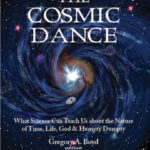We run our website the way we wished the whole internet worked: we provide high quality original content with no ads. We are funded solely by your direct support. Please consider supporting this project.
Do you believe God is pure actuality?
The basis of the classical view of God as pure actuality (actus purus) is the Aristotelian notion that potentiality is always potential for change and that something changes only because is lacks something else. So, a perfect being who lacks nothing must be devoid of potentiality, which means it must be pure actuality.
I think this perspective is misguided on a number of accounts.
First, if all our thinking about God is to be centered on Jesus Christ, the definitive revelation of God (Heb. 1:1-3), I don’t see how we could ever come to the conclusion that God is devoid of potentiality. In Christ, God became something he wasn’t previously – namely, a human being. This entails that God had the potential to become a human being. And this alone is enough to dismiss the “God as pure actuality” idea.
I would argue this insight is confirmed with every verb ascribed to God in the Bible. Whenever God acts in time, it implies that God first had the potential to do what he did and then he did it. Aristotle’s actus purus deity can engage in no such activities.
Beyond this, however, it seems to me the actus purus model of perfection is strongly counter-intuitive. We usually see potentiality as a positive thing. The more potential something has, the higher we value it, all other things being equal. For example, part of what makes us consider humans to have more value than (say) cattle is that humans have far more potential to do positive things than cattle do.
On the other hand, what analogy is there to help us understand the total absence of potentiality for positive things as being itself a positive thing? All of our understanding of God is rooted in analogies from our experience, since that about which we have no analogy is meaningless. So how are we to analogically understand God, the one who possesses all positive value, as being completely devoid of potentiality? I know of no way to do this. This suggests that not only is the concept of the supreme, perfect God being actus purus counter-intuitive: it arguably is also unintelligible.
Given our uniform experience of potentiality, it would rather seem we should conceive of God as possessing the maximal amount of potentiality for positive things.
Some classical theists object to attributing potentiality to God because they consider potentiality to be a consequence of contingency, and thus inapplicable to a necessary being. However, why must a necessary being be conceived of as being necessary in every respect? While lacking the potential to (say) cease to exist or to worsen one’s character may be considered virtues—hence God’s existence and character should be conceived of as being strictly necessary—this doesn’t entail that the actions God engages in to express his necessary character must themselves be necessary.
For God to lack the potentiality to act and experience in contingent ways would be for God to lack something praiseworthy and valuable. It would amount to God lacking freedom, and indeed lacking everything we ordinarily associate with living, personal beings.
Thus, for biblical as well as philosophical reasons, I conclude that the classical view of God as actus purus is misguided.
Category: Q&A
Tags: Classical Theism, God, Open Theism, Q&A
Topics: Attributes and Character
Related Reading

What is the significance of Numbers 16:20–35?
After Israel’s sin under the leadership of Korah, the Lord said to Moses and Aaron, “Separate yourselves from this congregation, so that I may consume them in a moment” (vs. 21). Moses and Aaron pleaded with the Lord to only judge those who were most guilty. In response, the Lord modifies his judgment and gives…

Roger Olson’s Review of The Cosmic Dance
Today we wanted to share a review of The Cosmic Dance by esteemed theologian Roger Olson. You can check out an excerpt below or you can read the whole review here. You can place an order for The Cosmic Dance here. The Cosmic Dance is Greg’s (and friends’) attempt to present the case that the best contemporary science supports viewing…

Why Doesn’t God Make Himself Obvious?
Why is faith so difficult? Why isn’t God more obvious? Why doesn’t God come out and provide irrefutable proof that he is God so that there is no more doubt? Greg’s father raised such questions and Greg’s responses are recorded in the book Letters from a Skeptic. _______________________ What would happen … if God individually…

Why is the Bible so strict on prohibiting pre-marital sex? What’s the big deal?
Today in western culture people tend to have a rather “recreational” view of sex. It’s just a pleasurable physical activity we engage in. Even people who don’t consciously believe this are influenced by it , since we’re bombarded with this message every day through movies, television shows, radio, magazines, etc. Because we’re influence by this…

What are the different models of the Trinity in the Christian tradition?
The Psychological and Social Models of the Trinity The Bible teaches that there is only one God. At the same time, it teaches that the Father, Son, and Holy Spirit are each fully God. For this reason the church has always affirmed the doctrine of the Trinity, which teaches that God has one substance (ousia)…

How do you respond to Zechariah 12:10?
“when they look on the one they have pierced, they shall mourn for him…” Hundreds of years before Christ was born it was declared that he would be pierced (cf. John 19:24–27). Detailed prophecies such as this one help convince us that Jesus is the Messiah hoped for in the Old Testament. The ministry and…
